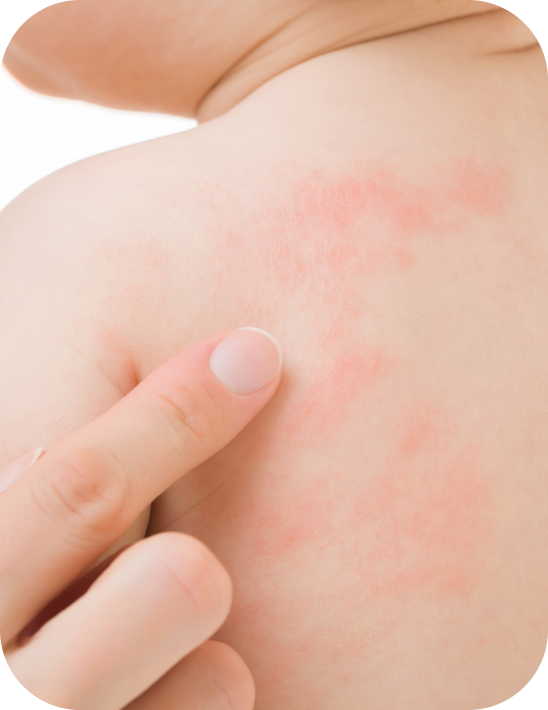Urticaria is a common skin condition and has been characterized as intensely pruritic with raised wheals (edema of the superficial skin) typically 1 to 2cm in diameter, but can be larger when they coalesce; they also can appear pale to brightly erythematous.1
It can occur in any age range and has a lifetime prevalence of approximately 20% in the general population.1
Urticaria, with or without angioedema, can be classified as acute or chronic. In acute urticaria, although individual wheals resolve within hours, they can recur for up to six weeks, depending on the etiology and can occur on any part of the skin.1



